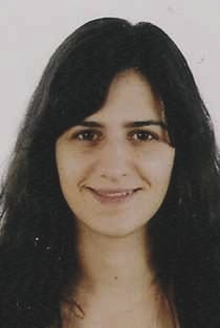Carolina Cuesta Lazaro is a final year PhD student at Durham University working on Large Scale Structure modelling.

Talk Title and Abstract
Redshift surveys in a nutshell, learning summary statistics with machine learning
Cosmologists have encountered one of the biggest mysteries in physics: the Universe is expanding in an accelerated manner. Can we reconcile this observation with Einstein’s general relativity, or should we find alternative theories? To answer this question, we build large three-dimensional maps of the Universe, whose statistical properties depend on the underlying laws of gravity. Traditional approaches to analyze these datasets have relied on summarising the rich, but noisy, three-dimensional information with N-point statistics. But can we extract all the cosmological information contained in these summaries? And how much extra information that is useful to constrain cosmology and gravity is missing in the summaries? In this talk I will present my research on simulation-based techniques to infer cosmological parameters from two-point statistics in redshift space galaxy surveys. Moreover, I will introduce my plan to design machine learning methods that optimally constrain cosmology by learning summary statistics from N-body simulations.
Would you like to join this Zoom seminar? Please email WCA.